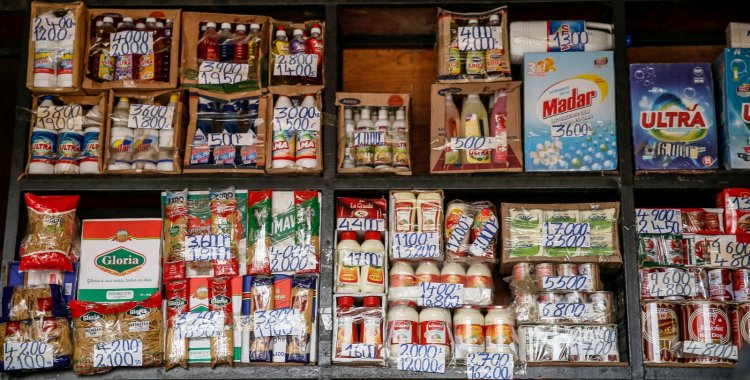The Afrosondagem study on the impact of the REA on the behavior of basic basket products in Angola, prepared between March 2022 and March 2023, indicates that prices "reduced significantly" since its implementation on December 22, 2021.
Wholesale prices fell by 29 percent and retail prices also fell by 31 percent, "representing a significant gain for household budgets".
Rice, corn, soy, sugar and chicken are some of the products that make up the REA, whose operation, under the responsibility of the private group Carrinho, began on December 22, 2021, a Government initiative aimed at lowering the prices of food products essential.
The study commissioned by the Aduaneiro de Angola, the entity that coordinates the REA, says that the "high drop" in the prices of basic food products in Angola "takes place in counter-cycle with a large increase in inflation levels and prices of these products worldwide".
"Since the REA was launched, there has also been a positive conditioning of the market operators, which results in a more stable behavior, both in the offer of products and in the maintenance of prices", reads in the document.
The research included a survey of Angolan companies, carried out between 5 and 8 April 2022 in the provinces of Luanda, Benguela, Huíla, Huambo, Cabinda and Lunda Norte, in a sample of 209 interviews.
A survey of Angolan families was also carried out, within the scope of the study, between the 4th and 7th of April in the same provinces, totaling 825 interviews.
It also points out that data from the National Statistics Institute (INE) show a "sharp drop" in the monthly variation of the Consumer Price Index (CPI) of food and non-alcoholic beverages in the formation of the CPI, having gone from 1.74 percent in March 2022 to 0.79 percent in March 2023.
"Which represents a drop of more than 50 percent", underlines the survey, noting, however, that the reduction in prices "is not, even so, much felt by Angolans".
As for the reaction of Angolans, when asked how much they actually paid for certain products in November 2021 and currently, the study observes, "everyone recognizes that prices have decreased".
But the perception they have, argues the survey, "is that prices have not decreased because they do not feel it in their pockets, stating that, probably, the prices of other goods and products have not decreased".
"And because wages do not increase, they have more and more difficulties in buying the same amount of products", he stresses.
Entrepreneurs "seem to be more satisfied" than Angolan families with regard to knowledge and intervention of REA.
According to the study, the results of the household survey show that 70 percent of Angolans shop in informal markets, and 9 percent shop in canteens.
The data also show that a significant percentage of Angolans "purchase in a 'partnership' system, that is, they associate with other buyers, to benefit from the lower unit prices practiced by the warehouses".
"Usually, Angolans paid, on average, in the last 12 months, 9,735 kwanzas for a 10-kilogram box of chicken, when, in December 2021, they paid 10,357 kwanzas: this represents a 12 percent reduction/saving in prices, when compared to Christmas 2021", it is also mentioned in the study.







